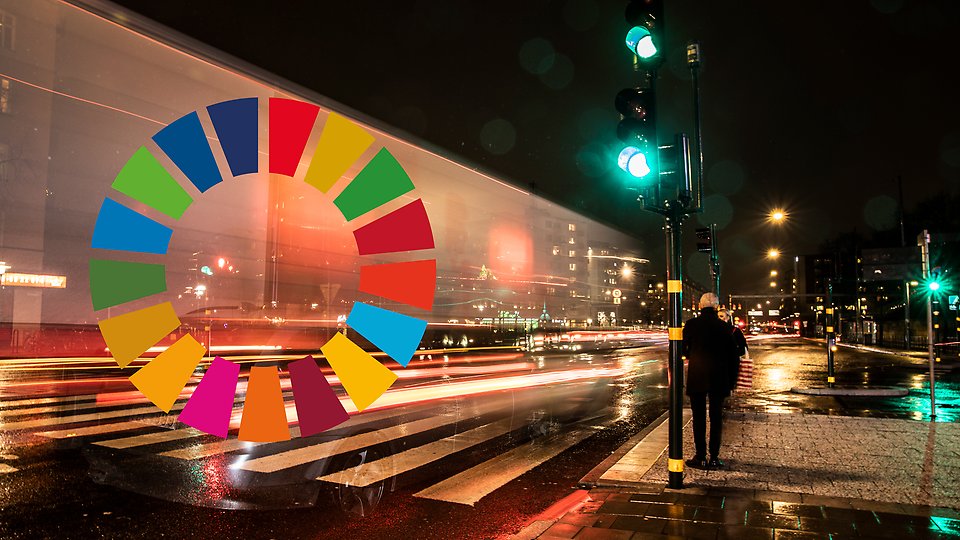Swedish scientists pave the way for achieving the sustainable development goals

Powered by both unexpected and pioneering ideas, Swedish research is taking a major leap forward in realising the Agenda 2030 goals.
Eleven projects have been awarded funding in one of Formas’ biggest targeted calls ever. Formas is injecting a substantial amount of funds – slightly over 210 million kronor – into Swedish research for Agenda 2030. The projects span the global arena and have the potential to impact many people around the world.
“A mix of pioneering ideas, talented researchers and extraordinary collaboration gives these projects every opportunity to truly build knowledge in our efforts to achieve the sustainable development goals,” says Katarina Buhr, Senior Research Officer at Formas.
Some of the projects involve the implementation itself of Agenda 2030, such as developing tools for policy coherence when implementing the SDGs nationwide or exploring the role that private-public partnerships can play. Other projects address a more specific topic that challenges existing systems, such as examining the rights of nature or exploring complementary options for today’s monetary systems that can promote sustainable consumption.
Several projects also take a global angle, focusing on transnational collaboration or more concrete challenges in developing countries, such as improving land use in drylands, sustainable rural development in Africa, and the link between air pollution and health in India.
“We have ten years to achieve the sustainable development goals. With this funding initiative, Formas thus encouraged researchers to both tackle significant scientific challenges and take action to enable their research results to bring real-world impact. At the same time, we are advancing the position of Swedish sustainability research and the Swedish Agenda 2030 efforts,” says Ingrid Petersson, Director General of Formas.
Project title | Organisation |
The Economics of Planetary Boundaries | Uppsala University |
Implementing sustainable development goals in an incoherent world: Aligning climate action and reduced inequalities | Stockholm Environment Institute |
Mobilizing farmer organisations for sustainable agriculture in sub-Saharan Africa: Collaborative comparative analysis of rural social movement building and outcomes in Ghana, Uganda and Zimbabwe | Lund University |
Special-purpose money: Complementary digital currencies and the sustainable development goals | Lund University |
Transformative partnerships for sustainable development: Assessing synergies, effectiveness and legitimacy of UN multi-stakeholder partnerships across SDGs to achieve the 2030 Agenda | Institute for Futures Studies |
Realizing Rights of Nature: Sustaining Development and Democracy | Uppsala University |
Climate, Health and Air pollution Research in India (CHAIR-India): Addressing Gaps in Achieving the Sustainable Development Goals | Karolinska Institute |
Inequality and the Biosphere: Achieving the Sustainable Development Goals in an Unequal World | Royal Swedish Academy of Sciences |
Science in action: intersecting pathways to the SDGs across scales in the drylands (XPaths) | Stockholm University |
Achieving the SDGs in East African drylands: Pathways and challenges towards a social-ecological transformation of landscapes, livestock and livelihoods (Drylands Transform) | Swedish University of Agricultural Sciences |
The Mediated Planet: Claiming Data for Environmental SDGs | Royal Institute of Technology |
About the call:
- Formas received 174 applications, of which 11 projects were awarded grants of between 10 and 20 million kronor each.
- To address the substantial mobilisation from the scientific community and interest in the call, Formas increased the total appropriation from 100 million to slightly over 210 million kronor.
Sweden’s implementation of Agenda 2030
In June 2020, the government submitted bill 2019/20:188 on Sweden’s implementation of Agenda 2030 to the Swedish parliament. It proposes an overarching goal that anchors and clarifies Sweden’s commitment to implementing the agenda. In addition, it highlights several factors at the core of Formas’ call "Realising the global sustainable development goals", including the need for international collaboration, coordination and interaction among actors across society and the need for enhanced knowledge, research and innovation to discover solutions to the challenges around achieving the agenda goals, both nationwide and worldwide.
The bill also underscores the importance of new forms of knowledge dissemination and innovative partnerships that can translate sustainability research into practice. This has been captured in different ways by the projects that are now being funded.
